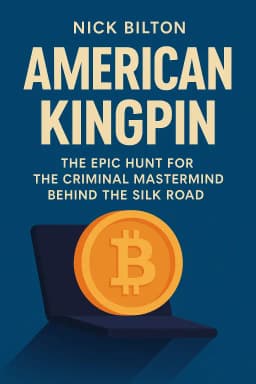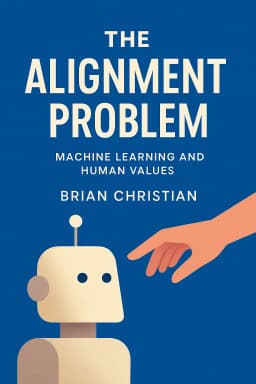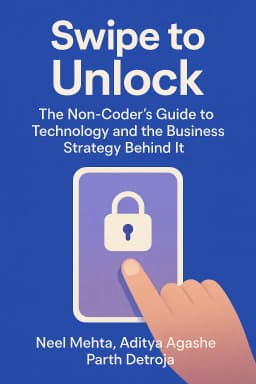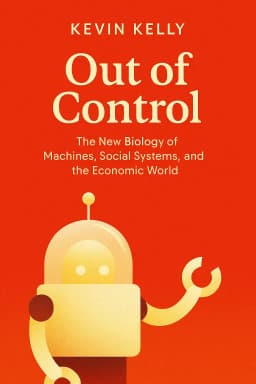
The Kingpin's Code
Golden Hook & Introduction
SECTION
Joe: Most people think the story of Bitcoin is about getting rich quick. The real story is much darker. It’s about a 29-year-old idealist from Texas who tried to build a libertarian utopia online... and ended up ordering multiple assassinations from his laptop. Lewis: Whoa, hold on. Assassinations? That is not where I thought you were going with this. That sounds less like a tech story and more like a season of Ozark. Joe: It's both, and that's what makes it so compelling. That's the wild story at the heart of Nick Bilton's book, American Kingpin: The Epic Hunt for the Criminal Mastermind Behind the Silk Road. Lewis: Right, and Bilton is a New York Times tech reporter, so he had incredible access. He’s not just writing about tech; he’s telling a true-crime story that feels like a Hollywood thriller. It was shortlisted for major business book awards for a reason. Joe: Exactly. It’s a page-turner. And it all starts with this revolutionary idea that was supposed to set everyone free. Lewis: Okay, I have to ask. What was that dream? Before the drugs and the hitmen, what was the big idea that got this whole thing started?
The Libertarian Dream: Bitcoin, Silk Road, and the Quest for a Digital Utopia
SECTION
Joe: The dream was pure, at least in the beginning. It came from a group in the 90s called the Cypherpunks. These were brilliant programmers and cryptographers who saw the internet coming and were terrified of what it would mean for privacy. They believed governments and corporations would use technology to watch everyone, all the time. Lewis: Which, looking around today, doesn't seem like such a crazy prediction. Joe: Not at all. Their motto was "Cypherpunks write code." They weren't just talking; they were building tools to protect privacy. And their holy grail was digital cash. A way to pay for things online anonymously, without a bank or a government in the middle. For years, they tried and failed. Then, in 2008, a mysterious figure named Satoshi Nakamoto posts a nine-page paper online outlining a system called Bitcoin. Lewis: The mythical Satoshi. The person no one can find. Joe: The very same. And one of the first people to take it seriously was a guy named Hal Finney. Finney was a legendary Cypherpunk, a brilliant programmer. He downloads the Bitcoin software on January 10, 2009, and it’s buggy, it keeps crashing. But he works with Satoshi over email to fix it. He becomes the first person, other than Satoshi, to ever receive a Bitcoin transaction. Lewis: So he's there at the absolute ground floor. What was his vision for it? Was he thinking about black markets? Joe: The opposite. He was a total idealist. He wrote this incredible email to Satoshi, imagining a future where Bitcoin becomes the dominant payment system in the world. He calculated that if that happened, the total value of all Bitcoins would have to equal all the wealth in the world, meaning a single Bitcoin could be worth millions of dollars. He saw it as a tool for global economic freedom. Lewis: Okay, that's the clean, intellectual version. It's inspiring, even. How does that pure idea connect to Ross Ulbricht, a guy building an online version of a drug cartel's bazaar? Joe: That's the fascinating part. Ross Ulbricht was, in his own way, an idealist too. He was a former Eagle Scout, got a master's in materials science, a very smart guy. But he had this profound libertarian awakening. He came to believe that the government was the source of most of the world's problems. He wrote in his journal, "Everywhere I looked I saw the State, and the horrible withering effects it had on the human spirit. It was horribly depressing. Like waking from a restless dream to find yourself in a cage with no way out." Lewis: That's pretty intense. So he's not just a criminal; he's a true believer. Joe: A true believer. He discovers Bitcoin and the Tor browser, which allows for anonymous internet browsing. And he sees a way to put his philosophy into action. He decides to create a marketplace where people can buy and sell anything, with no government oversight, no taxes, no rules except the ones he creates. He called it Silk Road. Lewis: But it's a marketplace for illegal drugs. I mean, primarily. How did he justify that as 'freedom'? It feels like a massive contradiction. Joe: For him, it wasn't a contradiction at all. It was the ultimate expression of his beliefs. He argued that as long as it was a voluntary transaction between two consenting adults, the government had no right to interfere. He saw drug prohibition as just another form of state control. In his mind, he wasn't a drug lord; he was a revolutionary, creating a space for pure, unadulterated free-market capitalism. He even set up an escrow system and a user-review system to build trust. He was building a new kind of state, with himself as its invisible, benevolent leader: the Dread Pirate Roberts. Lewis: The Dread Pirate Roberts, from The Princess Bride. That's... a choice. It’s amazing how a utopian idea, in the hands of two different people, can lead to such wildly different places. Hal Finney sees a global payment system. Ross Ulbricht sees an anonymous Amazon for heroin. Joe: And that's the exact contradiction that leads to the inevitable collision. When you build a world with no rules, you can't be surprised when things get messy. And nothing got messier than the first big Bitcoin exchange, Mt. Gox.
The Inevitable Collision: When Anarchy Meets the System
SECTION
Lewis: Ah, Mt. Gox. Even I've heard of that. It’s basically the Titanic of the crypto world, right? Joe: The perfect analogy. It started as a side project for a guy named Jed McCaleb, who actually wanted to build an exchange for Magic: The Gathering Online cards. That's what Mt. Gox stands for: Magic The Gathering Online eXchange. Lewis: You're kidding me. The biggest Bitcoin disaster in history started as a trading site for fantasy cards? Joe: It's true. He repurposed it for Bitcoin, it took off, and he quickly got overwhelmed. He sold it to a French programmer living in Tokyo named Mark Karpeles, a guy who was brilliant with code but, as it turns out, a terrible businessman. Mt. Gox became the center of the Bitcoin universe, handling over 70% of all transactions. But it was a house of cards. Lewis: What went wrong? Joe: Everything. The site was constantly crashing. Customer service was non-existent. And then, in early 2014, the withdrawals stopped. First, people couldn't get their dollars out. Then, they couldn't get their Bitcoins out. Panic started to set in. Karpeles blamed a bug in the Bitcoin code itself, something called "transaction malleability." Lewis: Okay, explain 'transaction malleability' to me like I'm five. Why was that such a big deal for Mt. Gox? Joe: Basically, it's a quirk in the code that allows someone to change a transaction's ID before it's confirmed on the blockchain. It doesn't let them change the amount or the destination, but it can make it look like the transaction never happened. Karpeles claimed hackers were using this to trick Mt. Gox into sending them Bitcoins twice. But here's the thing: every other major exchange knew about this issue and had already built workarounds. It was a known problem. Blaming it was a smokescreen. Lewis: So he was either incompetent or lying. Joe: Or both. The truth was much worse. A leaked internal document, the "Crisis Strategy Draft," revealed that Mt. Gox was missing 850,000 Bitcoins. At the time, that was worth nearly half a billion dollars. They were just... gone. Stolen over years from a poorly secured "hot wallet." Lewis: Half a billion dollars. That's staggering. The book mentions the human cost of this, right? Joe: It does, and it's heartbreaking. Bilton tells the story of an older Argentinian man who, terrified of his country's hyperinflation, had put his entire life savings into Bitcoin and stored it on Mt. Gox. He saw it as his only hope for a secure retirement. And then, overnight, it was all gone. He wrote this devastating email saying, "it destroyed the hopes I had created for using it as my wife and I got older. Each time this comes up it really hurts my health." Lewis: That's devastating. So the very thing meant to protect people from a broken financial system ends up wiping them out because of a different kind of broken system. A system with no insurance, no regulation, no recourse. Joe: Exactly. And while the financial side was imploding, the legal system was closing in on Silk Road. The FBI, Homeland Security, the IRS—they were all hunting for the Dread Pirate Roberts. They built this massive case, going undercover, buying drugs on the site, and trying to follow the money. But the big break was almost laughably simple. Lewis: What happened? Joe: An IRS agent named Gary Alford was just doing what we all do: Googling. He was searching for early mentions of Silk Road. He found a post on a Bitcoin forum from 2011, where a user named 'altoid' was advertising a new "anonymous hidden marketplace." In a follow-up post, altoid was looking for an IT pro and told people to contact him at... rossulbricht@gmail.com. Lewis: No. Come on. After all that sophistication with Tor and encryption, he's brought down by a Google search of his own email address? That's wild. Joe: It's the ultimate digital slip-up. From there, the agents connected the dots. They tracked his movements, his online activity, and finally located him in San Francisco. They planned this elaborate sting to arrest him at a public library while he was logged into the Silk Road admin panel, so they could seize his laptop before he could encrypt it. They staged a loud argument between two agents to distract him, and as he turned his head, another agent snatched the open laptop. Game over. Lewis: Wow. It’s like a spy movie. The whole thing, from the Cypherpunk dream to a guy getting tackled in a library over a half-billion-dollar drug empire, is just an incredible arc. Joe: It really is. And it all happened in just a few short years. A technological revolution and a massive crime wave all rolled into one.
Synthesis & Takeaways
SECTION
Lewis: So what's the big takeaway here? After reading all this, is Bitcoin inherently flawed, or was this just about a few bad actors like Ross Ulbricht and Mark Karpeles? Joe: I think Bilton's book shows it's more complex. The technology itself is a neutral tool, but its core feature—anonymity and decentralization—is a double-edged sword. It offers freedom from oppressive regimes, like for the people in Argentina who needed a way to escape a collapsing currency. That's the utopian promise. Lewis: But that same feature creates the perfect environment for black markets and crime. Joe: Precisely. Silk Road wasn't an anomaly; it was one of the first, most logical applications of the technology. If you create a tool for anonymous, untraceable transactions, someone is going to use it to sell illegal things. The book makes it clear that the idealism of the early days was bound to collide with the messiness of human nature. Lewis: It's a classic story of utopian ideals crashing into reality. You can't code away greed, fear, and violence. Ross Ulbricht thought he was building a new world, but he ended up having to deal with the same old problems, and he resorted to the same old ugly solutions, like ordering hits on people. Joe: And in the end, the system he tried to escape—the government, the law, the police—is what brought him down. It’s a powerful reminder that you can’t just opt out of society. The book really forces you to confront the tension between freedom and order. Lewis: It's a fascinating and cautionary tale. It makes you think about all the new technologies emerging now, like AI. We're having the same debates about utopian potential versus dystopian risks. Joe: And it leaves us with a huge question that we're still grappling with today: How do we embrace the incredible potential of these new technologies without unleashing their darkest possibilities? Lewis: That's a question with no easy answers. We'd love to hear what you think. Does technology like this ultimately do more good or more harm? Find us on our socials and let us know. Joe: This is Aibrary, signing off.









